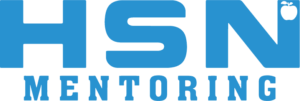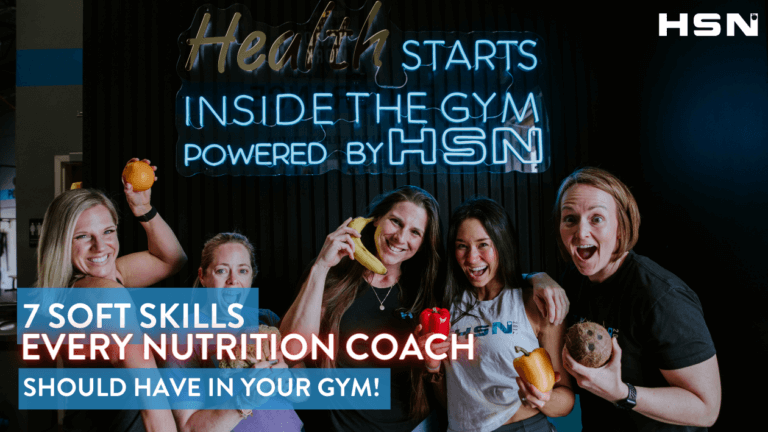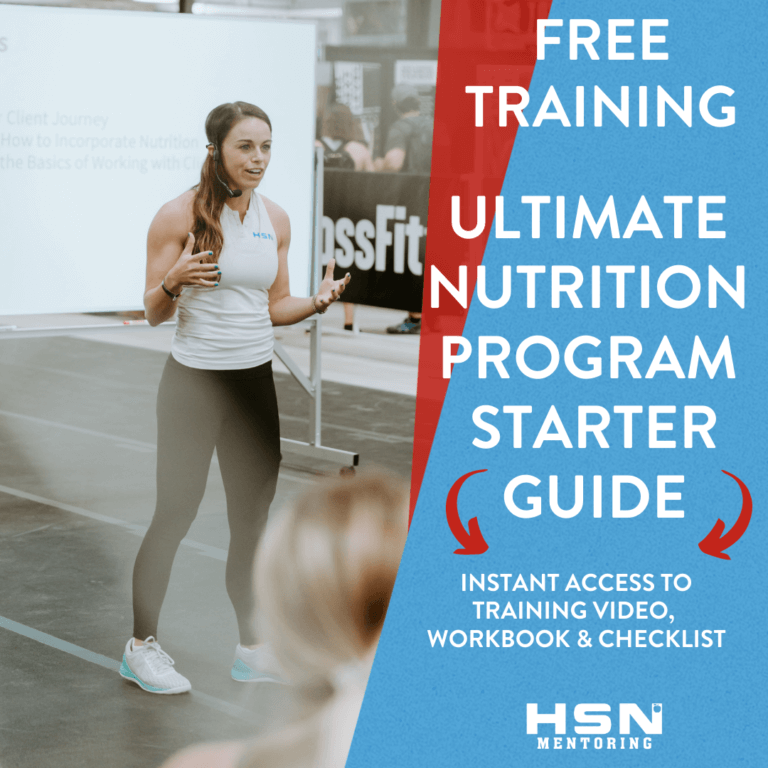Does the nutrition coach running your nutrition business have “soft skills”?
Being a successful nutrition coach requires more than just knowledge of nutrition science and writing meal plans. Effective nutrition coaching involves a combination of both internal and external qualities or skills, and a genuine commitment to helping clients achieve their health and wellness goals.
We call these skills “soft skills”.
As gym owners, client satisfaction and results are two very important things in your business! A big factor in client satisfaction falls in the hands of the people you have administrating your product. In the gym setting, coaches and client success managers are it. Making sure that these key employees have the personal attributes and soft skills necessary to undertake this massive responsibility is important.
In this blog post, we will highlight the soft skills we think are necessary for every nutrition coach in your program to have.
What Are Soft Skills And Why Are Soft Skills Important When Nutrition Coaching?

Soft skills are characteristics and traits within an individual that contribute to their effectiveness when interacting with others. Unlike hard skills, which are more technical and task-oriented, soft skills are more related to emotional intelligence.
A nutrition coach with good soft skills can interact effectively with most people.
Have you ever tried to communicate with someone but felt like they were just “not a good” fit for you? Another example of lack of soft skills comes into play when learning from a teacher or coach. They have SO MANY qualifications and credentials behind their name, but yet very few people get anything from their class because they don’t have the ability to relay what they are teaching effectively.
This person could potentially be lacking in soft skills.
Soft skills are necessary for nutrition coaches or any coach to effectively engage with clients, understand their needs, and help guide them toward sustainable behavior change.
Soft skills can be broken down into internal or interpersonal skills and external soft skills.
Here Are 5 Soft Skills We Think Every Nutrition Coach Should Have

Interpersonal Skills
Soft Skill #1 - Adaptability & Flexibility
Being a nutrition coach is dynamic. What works for one client in your nutrition program may not work for another. A good nutrition coach is adaptable, flexible, and willing to adjust strategies based on individual responses. When a client’s focus changes, an adaptable nutrition coach has no challenges with providing support and helping clients solve new problems.
Staying updated and open-minded to new research findings, plus being willing to modify recommendations based on emerging evidence, is important for providing the best possible guidance for nutrition clients.
Soft Skills #2 - Problem Solving Skills & Critical Thinking
Nutrition coaches often encounter challenges and barriers that clients face in implementing a healthier lifestyle. Strong problem-solving skills enable a certified nutrition coach to identify obstacles and work collaboratively with clients to develop practical solutions.
Whether it’s addressing eating habits, budget limitations, meal prep issues, or providing feedback, a nutrition coach should be adept at finding creative and realistic strategies to overcome hurdles.

Soft Skill #3 - Confidence
Confidence is the belief in one’s ability! A confident nutrition coach instills trust in clients and empowers them to make positive changes. Confidence allows coaches to handle uncertainties with assurance, instilling a sense of security and encouragement in their clients. When people are confident, they are not afraid to make mistakes and are unwavering in their ability to lead, relying on past experience and knowledge through education to help them with problem-solving.
They will say “I don’t know the answer to this but I will find out.” Or they will provide solutions based on education confidently relying on their training. They walk with their head high rather than looking down.
When someone is not confident, they will second guess every recommendation they give to clients and get stuck providing only the recommendations they have experienced personally or based on other clients’ results. Many clients can sense a lack of confidence and will begin to question the abilities of the nutrition coach to help them.

External Soft Skills
Soft Skill #4 - Effective Communication & Active Listening Skills
Clear and effective communication is vital for a nutrition coaches and fitness professionals to convey complex information in a way that clients can easily understand and provide conflict resolution. Nutrition coaches need to articulate recommendations, goals, and strategies that resonate with clients of varying backgrounds and levels of nutritional knowledge. Communication skills also involve adapting communication styles to suit individual client preferences.
Some clients prefer to communicate often, while others prefer less hands-on approach. Many will ignore messages on an app but will open up in person. It is of utmost importance and a best practice that communication styles are discussed when conducting a new client consultation.
Active Listening
Have you ever had a conversation with someone where they constantly interrupted you? Or even worse, do they look at their phone when having a conversation? It’s a terrible feeling to be on the receiving side of this. These scenarios are both a good example of someone not actively listening.
Nutrition coaches must be exceptional at active listening. Doing so will let clients know what they are saying matters. If the nutrition coach is looking away during a client conversation or constantly looking at a phone, the client will feel unimportant, and what they are saying does not matter.
Soft Skill #5 - Empathy and Understanding
Recognizing and empathizing with clients’ struggles is vital for building trust and rapport. In order to help change behaviors, a nutrition coach must be compassionate, understand the emotional aspects of food choices, and provide support without judgment.
Creating a safe, non-judgmental space encourages open communication and helps clients feel comfortable sharing their concerns and setbacks.
Soft Skill #6 - Customization and Individualization
Everyone is unique, and what works for one person may not work for another. A good nutrition coach understands the importance of customization and tailors their advice to each client’s specific needs, preferences, and lifestyle.
The ability to create personalized prescriptions for each client is important. Nobody wants a cookie-cutter plan. All clients have specific examples of what they are struggling with. For some, it may be habit formation, athletic performance, or weight loss. Others may need help with learning what to eat so they can ditch the diet!
Regardless of what they are looking for, professional success will be found by the nutrition coach if they realize that individualization is a key aspect of effective coaching.

Soft Skill #7 - Motivation & Accountability
Motivating clients to make and sustain positive changes is a critical role of a nutrition coach. This involves setting realistic goals, celebrating non-scale victories, and helping clients overcome obstacles.
Providing ongoing encouragement and accountability helps clients stay committed to their nutritional plans. A successful coach understands the psychological aspects of behavior change and helps clients develop a positive mindset.
One study indicates that accountability is paramount for success. The organization found that people who communicate their goal to others are 65% more likely to achieve it than if they said nothing at all. Even more outstanding is that the same person is 95% more likely to achieve their goal if they have weekly meetings with someone about it.

Wrap Up
It’s clear that soft skills complement the hard skills necessary to be a nutrition coach. At Healthy Steps Nutrition, coaching isn’t about prescribing diets and meal plans. It’s about building healthy habits for life utilizing a holistic framework. So many factors play into what clients choose to eat. It’s not just about making the choice then moving on. This is why these soft skills, such as good communication and all the others, are extremely important for a nutrition coach to have.
If you are a gym owner or nutrition coach reading this and you are not part of our mentoring program – click the link below to see if we could help you. We have a gym mentoring program and a nutrition coach certification.





